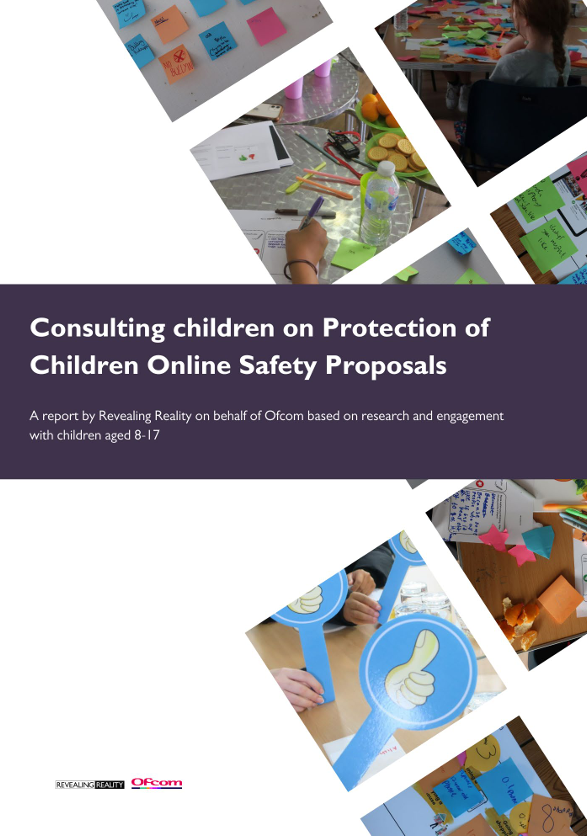In anticipation of its role in regulating online safety, Ofcom commissioned Revealing Reality to engage children and gather their perspectives on proposed measures to protect them from online harm.
A new report, published in April 2025, details the findings of this deliberative research project, which involved the consultation of over 100 children aged 8-17 across the UK.
Deliberative research to amplify young voices in policy development
Ofcom recognised that the Protection of Children Consultation, which outlined over 40 measures for online services, was unlikely to capture the views of children themselves. Given that these measures would directly impact children’s online experiences, Ofcom prioritised actively seeking their input.
Using age-appropriate materials and interactive methods, we facilitated rich deliberative discussions, enabling children to provide meaningful insights into how these measures would affect their online experiences.
We translated complex policy codes of practice into clear, child-friendly concepts tailored for children aged 8 to 17 – empowering children to understand and reflect thoughtfully on the proposals. We also ensured a diverse sample, including those with experiences of a wide range of vulnerabilities, to hear from people with unique perspectives on online harm.
Children broadly supported the proposals, but voiced some practical concerns
Overall, children expressed broad support for Ofcom’s role in online safety and the proposed measures. They welcomed the idea of Ofcom and online services taking greater responsibility for their safety, acknowledging their own experiences of online harm and feeling that children currently bear too much responsibility for protecting themselves.
However, children also raised important concerns about the practical implementation and effectiveness of the proposed measures. They questioned the ability of online services to accurately identify and moderate harmful content and expressed scepticism about age verification methods.
A key concern was the potential for inconsistent application of measures, leading to feelings of exclusion if some children were able to access online spaces or content that others couldn’t.
Why children’s perspectives matter
Children have very different online experiences to the adults who are responsible for keeping them safe.
The children we spoke to offered valuable insights, drawing on their own experiences online to assess how the proposed codes of practice might affect themselves, their friends, and other young people. They carefully weighed the potential pros and cons of Ofcom’s ideas and raised important questions about their practical application.
Overall, they expressed a clear desire for safer experiences online, and for adults to take greater responsibility in ensuring their safety.
Consulting children has helped to provide Ofcom with a real-world view of the proposals, and the insights and suggestions participants gave have been reflected in some of Ofcom’s final decisions.

